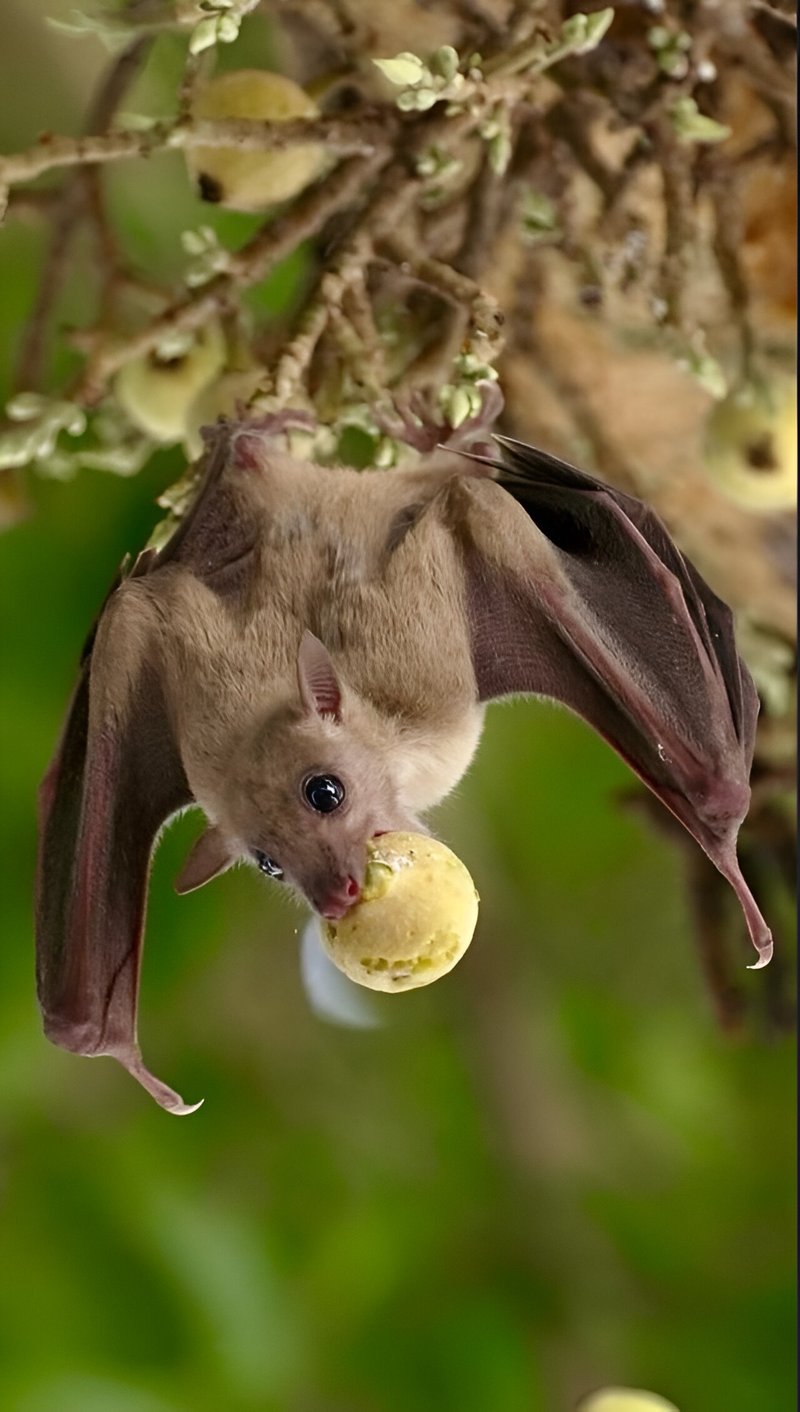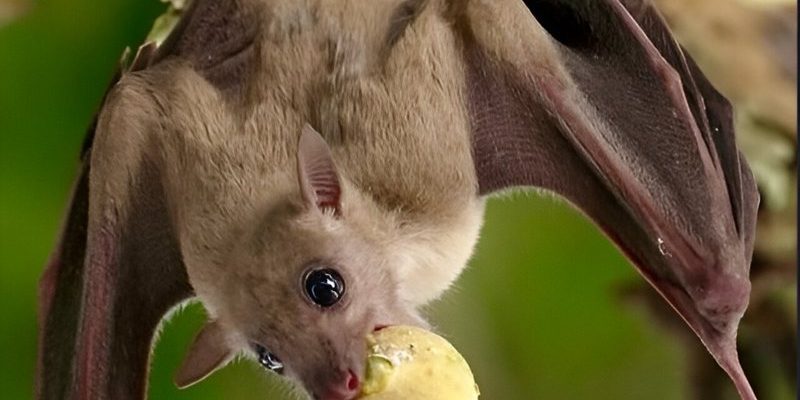
Fruit bats are known for their unique behaviors and cognitive skills, which often spark curiosity among researchers and wildlife enthusiasts alike. They belong to the Pteropodidae family and are primarily fruit-eating bats. With a wingspan that can reach up to six feet, these gentle giants are as charming as they are brainy. Let’s dive into the world of fruit bats and explore their cognitive abilities and behavior to understand just how smart they really are.
The Basics of Fruit Bat Intelligence
You might be wondering what makes fruit bats stand out in the animal kingdom when it comes to intelligence. One key factor is their complex social structures. Unlike many other bat species, fruit bats often live in large colonies. This social life requires them to communicate effectively and form strong bonds with one another, which is a sign of higher cognitive abilities.
Moreover, fruit bats have shown the ability to solve problems and adapt to various situations. For instance, they can remember where they found food sources and can even learn from each other. This level of learning is crucial for survival and demonstrates their impressive mental capacity.
Research has indicated that fruit bats can perform tasks that involve spatial awareness, memory, and even some form of reasoning. For example, they can navigate through dense forests at night, using their keen sense of smell and echolocation to find fruit. This combination of skills hints at a more advanced level of intelligence compared to other bat species that lead a more solitary life.
Social Behavior and Communication
Let’s talk about fruit bats’ social lives—it’s quite the spectacle! These bats are incredibly social creatures, often forming colonies that can number in the thousands. In these large groups, they engage in behaviors that reflect their intelligence.
The way fruit bats communicate is truly fascinating. They use a variety of sounds to express different emotions and needs, which adds depth to their social interactions. For instance, they produce clicks, screeches, and even low-frequency sounds to keep in touch with one another while flying in the dark. It’s like having a conversation in the air!
In addition to vocalizations, they also use body language to communicate. Grooming each other is a common behavior in fruit bat colonies, which helps strengthen social bonds. This level of interaction highlights the cognitive abilities of these bats, showing that they understand the importance of relationships within their groups.
Navigational Skills and Memory
Ever tried to find your way through a dark maze without a flashlight? Now, imagine doing that while soaring through the air. Fruit bats have incredible navigational skills, which are essential for finding food and returning to their roosts safely.
One key to their navigation lies in their memory. Fruit bats can remember the locations of fruit trees and water sources, even after long periods away. This skill is crucial for their survival, as food sources can be scattered over large areas. Their ability to recall these locations shows a significant level of cognitive sophistication.
Interestingly, studies have indicated that fruit bats can also learn from each other’s experiences. If one bat discovers a new food source, others can follow, thanks to their social learning ability. It’s a perfect example of how their intelligence helps the entire colony thrive.
Problem-Solving Capabilities
When we talk about intelligence, problem-solving often comes to mind. Fruit bats have demonstrated impressive problem-solving capabilities in various studies. For instance, researchers have tested their abilities to access food that’s hidden or requires manipulation to reach.
These bats can figure out how to open containers or navigate around obstacles to get to their snacks. In a way, it’s like giving them a puzzle to solve. Their success in these tasks showcases their ability to think critically and adapt to new challenges.
This adaptability is essential, as the environment fruit bats inhabit can change. By being resourceful and creative, they can adjust to new situations, which is a hallmark of a smart animal.
Impact of Environment on Cognitive Abilities
Just like us, fruit bats’ cognitive abilities can be influenced by their environment. When food is plentiful, and conditions are stable, they thrive. However, when faced with habitat loss or food scarcity, their intelligence may also come into play as they adapt to survive.
For example, urbanization can pose challenges for fruit bats, as it drives them away from their natural food sources. In response, they often find innovative ways to navigate urban landscapes. This adaptability often surprises researchers who study how animals can shift their behavior based on environmental changes.
Additionally, fruit bats can learn to avoid certain traps set by humans, showing an impressive awareness of their surroundings. This ability to assess risk and adjust their actions is a fascinating aspect of their intelligence.
So, how smart is a fruit bat? Honestly, they’re smarter than many might give them credit for. Their social structures, communication skills, navigational abilities, and problem-solving capabilities paint a picture of a highly intelligent animal. Fruit bats demonstrate a variety of cognitive features that are crucial not just for their survival but also for their social interactions.
Understanding the intelligence of fruit bats is not just an academic exercise. It highlights the importance of conservation efforts to protect these remarkable creatures and their habitats. As we continue to explore their minds, we gain valuable insights into the rich tapestry of animal intelligence and behavior. We should celebrate these creatures for their unique abilities and work to ensure they continue to thrive in our world.

